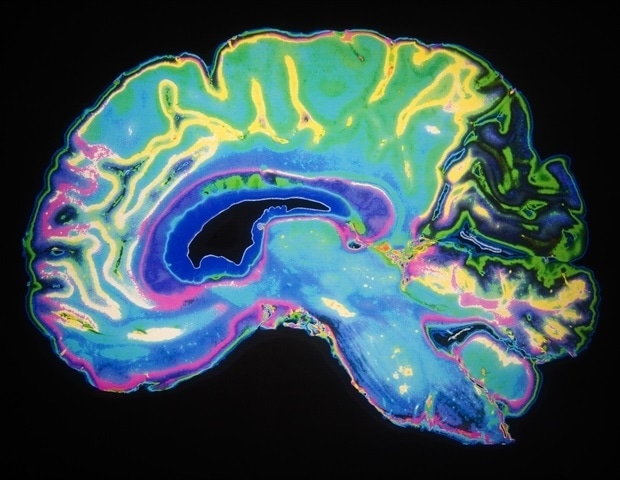
A new partnership between two leading medical research charities has launched today to explore how improving the brain’s waste disposal system could be the key to preventing Parkinson’s and Alzheimer’s disease.
The lymphatic system, a recently discovered brain-wide pathway, works to remove waste products from the brain. Parkinson’s the UK and Alzheimer’s Research UK have teamed up for a pioneering three-year project to find out whether boosting this system could help to clear toxic proteins, tau and alpha-synuclein, involved in Alzheimer’s and Parkinson’s.
The project will be led by Dr. Ian Harrison at the Centre for Advanced Biomedical Imaging at UCL. Previous research has shown that sleep, exercise and low levels of alcohol may help the lymphatic system to clear out toxic proteins in the cerebrospinal fluid of mice. This new research aims to build on these findings, testing the impact of these factors in speeding up the glymphatic function in mouse models, as well as the effect of a potential new drug.
The mouse models will be specifically designed so the spread of alpha-synuclein and tau throughout the brain can be tracked. Small amounts of the toxic proteins will be injected into the mice, before using drugs to block the lymphatic system to find out how it affects the spread of the proteins.
By then testing a range of therapies to speed up the lymphatic system, their impact in the spread of alpha-synuclein and tau can be measured, along with the impact on movement-based and memory-based symptoms in the mouse models.
By understanding how the glymphatic system affects the accumulation and spread of proteins in the brain, and by finding a way to boost its function, it could lead to treatments that can target an important cause of both Parkinson’s and Alzheimer’s.
Combined, Alzheimer’s and Parkinson’s affect an estimated one million people across the UK. Current treatments do not stop, slow down, or reverse either of the conditions.
Dr Ian Harrison of UCL said:
Studying how the glymphatic system affects the clearance of two distinct protein species that both accumulate in the brain and cause neurodegeneration means we’ll be able to understand how best to harness the power of the system. This will hopefully allow us to provide a new therapeutic target for treatment of the conditions.
The funding of the project by Alzheimer’s Research UK and Parkinson’s UK will allow tandem investigation of both proteins in both neurological disorders, ultimately speeding up research in two closely related fields, and the hope in finding a way to slow down or stop the progression of both Parkinson’s and Alzheimer’s.”
Professor David Dexter, Deputy Director of Research at Parkinson’s UK, said:
We’re very pleased to be collaborating with Alzheimer’s Research UK on this exciting project which will explore ways to simultaneously prevent two serious neurological conditions.
This is the first time we’ll be studying the glymphatic system’s role in clearing toxic proteins, and the potential it provides for developing new treatments which are urgently needed by people living with Parkinson’s.
By teaming up with Alzheimer’s Research UK we’re able to invest more time and resource in order to improve the lives of over one million people across the UK.”
Dr. Sara Imarisio, Head of Research at Alzheimer’s Research UK, said:
The causes of Alzheimer’s disease are complex. While there are many differences between Parkinson’s and Alzheimer’s, common biology between both diseases means that research into one condition can provide important insights into the other.
This new research could shed light on a disease process that holds potential as a target for future drugs, and that could change the course of Alzheimer's and other neurodegenerative diseases.
Forging a collaboration with Parkinson’s UK to fund this pioneering research makes sure that world-leading science can lead to discoveries as quickly as possible.
It’s only through research that we will keep people connected to their families, their worlds and themselves for longer.”
Parkinson's UK.






No comments
Post a Comment